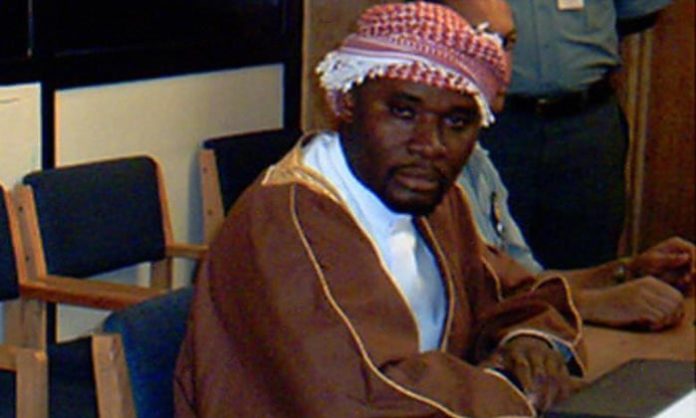By The Rwandan Lawyer
Introduction
Ngeze Hassan the chief editor of the journal Kangura has passed the 2/3 of imprisonment which allows him to benefit from the release on parole as the other convicted who ended up this required enjoyed this legal favor. While other inmates were freed by the IRMCT without resorting to the Rwandan government, Ngeze Hassan has requested this condition release was addressed to the Rwandan Minister of Justice as if he expects from Rwandan authorities a favorable feedback. The Rwandan authorities opted for the rejection of the application. The present article analyses the prevailing situation.
Facts
Hassan Ngeze, born 25 December 1957, is a Rwandan journalist best known for spreading anti-Tutsi propaganda in his journal Kangura, which he founded in 1990.
Ngeze is best known for publishing the “Hutu Ten Commandments” in the December edition of Kangura in 1990.
Analysis
Ngeze Hassan is perceived in two aspects; in one side, he is a journalist mediatizing the interethnic hatred in favor of Hutu; on the other side, he is an infiltrated RPF agent with a fierce mission of worsening the governance of the Hutu regime in terms of failure to protect all its citizens in the eyes of international community.
-Ngeze Hassan as a journalist pro-hutu
Ngeze was the Editor-in-Chief of the bimonthly Kangura magazine,[1] which was initially intended as a counterweight to the anti-government newspaper Kanguka.
In December 1990, Ngeze published the Hutu Ten Commandments (sometimes called the Ten Commandments of the Bahutu) in Kangura, which made disparaging remarks about Tutsis in general and Tutsi women in particular. With the Hutu Ten Commandments, Ngeze revived, revised, and reconciled the Hamitic myth (Tutsis were considered by the Europeans to be a “Hamitic race” superior to the “Negroid” populations of Sub-Saharan Africa based on their having more Caucasoid facial features; that is, the idea that the Tutsis were foreign invaders and thus should not be part of the Hutu-majority country)
Ngeze fled Rwanda in July 1994 as the country fell to the RPF. He was arrested in Mombasa, Kenya on July 18, 1997, and was sentenced to life imprisonment in 2003, by the International Criminal Tribunal for Rwanda. In 2007, the Appeals Chamber of the ICTR reversed some of his convictions, but confirmed others. It also changed his life sentence to one of 35 years’ imprisonment. The charges of “aiding and abetting the commission of genocide in Gisenyi prefecture; direct and public incitement to commit genocide through the publication of articles in his Kangura newspaper in 1994; aiding and abetting extermination as a crime against humanity in Gisenyi prefecture” were upheld. On 3 December 2008 he was sent to Mali to serve his sentence of imprisonment.
-The response of the Rwandan Attorney General
The Rwandan government has been always in conflicts with ICTR on its slowness of trials and on some of its decisions which released some politicians like Mugenzi Justin, ancient chairman of PL party; Protais Zigiranyirazo the former prefet of Ruhengeri and brother-in-law of President Habyarimana; Prosper Mugiraneza and André Ntagerura former ministers, all but a few. In this line faced with this application, the Rwandan government would have reacted either by the administrative silence as if it did not receive the letter or overtly reject the application especially through a political response according to which it did not agree with the penalty, he was sentenced to given the gravity of facts and that therefore there is no reason to decide anything on the ridiculous application of a criminal; the response given resembles to the latter alternative.
–Analysis of the Kigali reaction
The Minister of Justice replied recommending that the application should be rejected alleging NGEZE Hassan did not behave well in detention. None is surprised by this reaction. Indeed, apart from having always contested the penalties inflicted to genocide convicts decided by ICTR regime judging them less severe and recommending life imprisonment for all, the Rwandan regime could not react better than that. Furthermore, there remains a question not yet responded to know whether the rwandan MINIJST is entitled to monitor the conduct of ICTR inmates and recommend their release or rejection of their application thereon. Alas, no, indeed, the MIRCT is among other things in charge of monitoring the execution of sentences. Thus, those convicted by the ICTR, the ICTY and the Mechanism are serving their sentences in one of the states that have signed an agreement on the execution of sentences. These sentences are carried out in accordance with international standards on detention and the domestic law of the State in which the sentence is served, under the supervision of the Mechanism.
The President of the Mechanism is responsible for designating the state where the sentence is to be served, for supervising the execution of sentences and for ruling on requests for pardon, commutation of sentence and early release.
Conclusion
The rejection of application requiring an opinion from the Rwandan attorney general is more political than legal; trend which always jeopardizes the Rwandan judicial system. Indeed, legally reasoning, it is up to the country in which the inmate is detained to decide his release on parole upon concluding report of the prison authorities on the conduct of the applicant. Besides, apart from political and subjective speculations, it is doubtful that Rwandan judicial authorities would have carried out a follow-up on the alleged misconduct of the applicant while as we know they do not do such a follow-up even for internal inmates whereby more than 3000 people sentenced for genocide who were enforcing the community works(TIG) fled the country and this phenomenon was found out very late. In a nutshell, none was surprised by the Rwandan position; everybody was expecting such a reaction.
































































